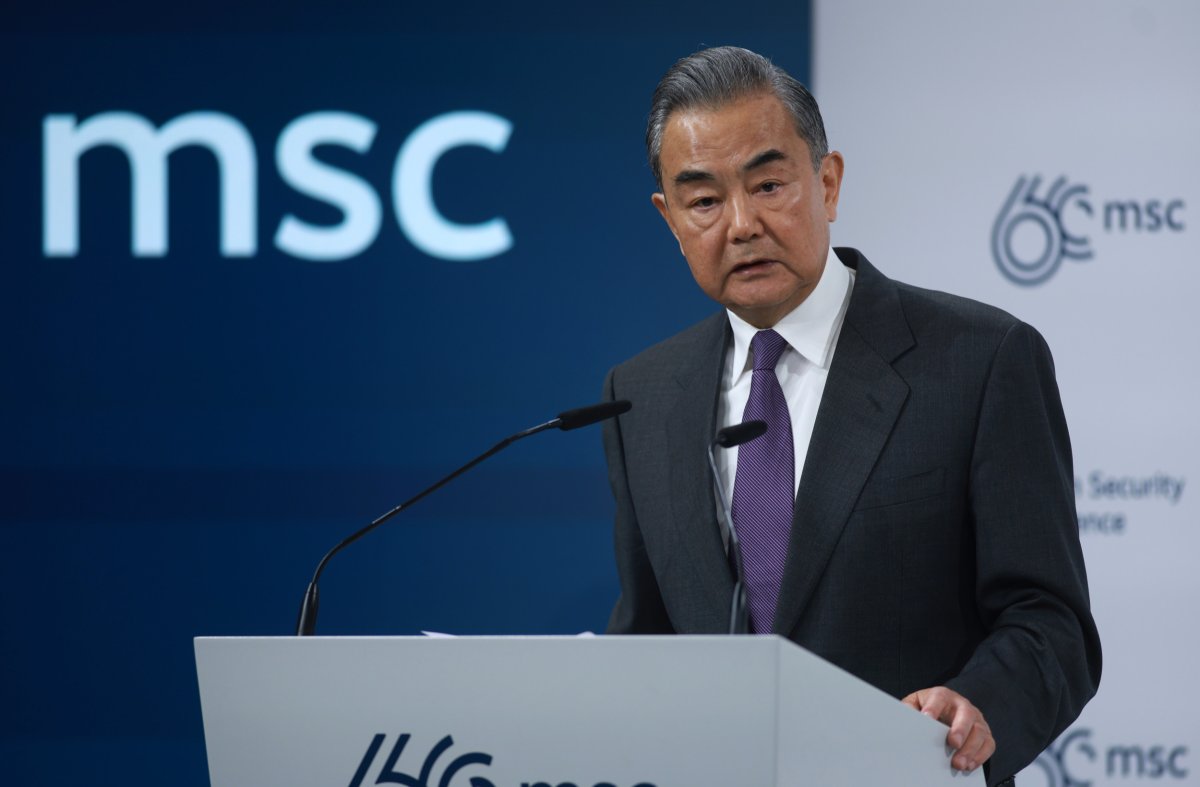China's foreign minister warned the U.S. that Washington's sanctions targeting Beijing's technology companies "will backfire."
"Turning 'de-risking' into 'de-China,' building 'small yards and high walls,' and engaging in 'decoupling from China' will eventually backfire on the United States itself," Chinese Foreign Minister Wang Yi told U.S. Secretary of State Antony Blinken during their meeting at the sidelines of the 60th Munich Security Conference (MSC) on February 16.
At the MSC, a leading platform for discussing global security issues, Wang delivered a pointed message to Blinken, cautioning against the escalating technology tensions between the US and China. Wang's warning referred to Washington's targeted restrictions on the sale of high-end semiconductor chips to China, which has had an impact on Beijing's technological innovation. China has doubled down in developing its domestic semiconductor industry to soften the blow.

China has taken countermeasures by imposing restrictions on access to rare earth minerals, which are crucial for the defense industry and semiconductor supply chain. Beijing dominates the production and manufacturing of rare earth minerals.
The conference, which concluded on Sunday, saw leaders from around the globe convene to address pressing geopolitical challenges, including the situation in the Middle East and the ongoing conflict in Ukraine. Friction between the U.S. and China twas also a key focus.
Wang Yi's discussions with Blinken were framed within a broader appeal for the United States to reconsider its stance towards Chinese companies and individuals. He argued for lifting what he described as "illegal unilateral sanctions" and stressed the importance of not undermining China's "legitimate development rights."
His comments reflect the recent efforts by Beijing and Washington to thaw relations, which had previously deteriorated to their lowest point in decades, highlighting a tentative shift towards dialogue and reconciliation.
The Munich Security Conference also unfolded against the backdrop of relatively positive developments in U.S.-China relations in recent months.
Notably, a meeting between Chinese President Xi Jinping and U.S. President Joe Biden in November 2023 in San Francisco marked a step towards cooperation, with agreements reached on issues such as fentanyl, military communications and artificial intelligence.
Additionally, the first joint meeting of a working group on fentanyl precursor chemicals in Beijing and discussions between China's financial officials and U.S. Treasury officials earlier this month signaled cautious but hopeful progress in bilateral relations, Time Magazine reported last month.
But despite these positive signals of cooperation, senior officials have hinted that the U.S. could impose further sanctions against Beijing's companies.
"The world needs us to manage our relationship with China responsibly to avoid escalation. You've got to do all that, but make no mistake about it—China is not our friend, and we need to be eyes wide open about the extent of that threat," Gina Raimondo, the U.S. commerce secretary, said in December 2023, while discussing the potential future sanctions against China.
Wang Yi's comments at the conference also resonated with broader international concerns about economic security and sovereignty, as evidenced by the European Commission's recent initiatives.
These initiatives aim to strengthen the European Union's economic resilience by scrutinizing foreign investments and regulating technology exports to rivals, including China, highlighting a shared Western strategy of reducing economic dependence on China amid its close ties to Russia.
Uncommon Knowledge
Newsweek is committed to challenging conventional wisdom and finding connections in the search for common ground.
Newsweek is committed to challenging conventional wisdom and finding connections in the search for common ground.
About the writer
Aadil Brar is a reporter for Newsweek based in Taipei, Taiwan. He covers international security, U.S.-China relations, and East Asian ... Read more
To read how Newsweek uses AI as a newsroom tool, Click here.








